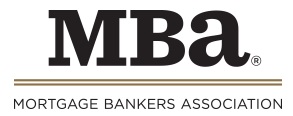WASHINGTON, D.C. – RealEstateRama – The delinquency rate for mortgage loans on one-to-four-unit residential properties decreased to a seasonally adjusted rate of 7.65 percent of all loans outstanding at the end of the third quarter of 2020, according to the Mortgage Bankers Association’s (MBA) National Delinquency Survey.
The delinquency rate was down 57 basis points from the second quarter of 2020 and up 368 basis points from one year ago. For the purposes of the survey, MBA asks servicers to report loans in forbearance as delinquent if the payment was not made based on the original terms of the mortgage.
“Consistent with the improving labor market and the overall economic rebound, homeowners’ ability to make their mortgage payments improved in the third quarter,” said Marina Walsh, CMB, MBA’s Vice President of Industry Analysis. “The decrease in the mortgage delinquency rate was driven by a sharp decline in newer 30-day delinquencies and 60-day delinquencies. Particularly encouraging was the 30-day delinquency rate, which reached its lowest level since MBA’s survey began in 1979.”
Added Walsh, “Nonetheless, the 90-day and over delinquency rate continued to grow and reached its highest level since the second quarter of 2010. With forbearance plans still active and foreclosure moratoriums in place until at least the end of the year, many borrowers experiencing longer-term distress will remain in this delinquency category until a loss mitigation resolution is available.”
Certain homeowners, particularly those with FHA and VA loans, continue to be disproportionately impacted by the pandemic-driven crisis, according to Walsh. The FHA delinquency rate dropped slightly in the third quarter but was still at its second-highest rate in the survey. Furthermore, the FHA seriously delinquent rate – the percentage of loans that are 90 days or more past due or in the process of foreclosure – reached a survey-high 10.76 percent.
“There are no guarantees that last quarter’s improvement in the delinquency rate will continue. Recent actions to combat another wave of COVID-19 cases could slow or halt the recovery in some sectors – particularly the service industries – and the passage of another stimulus package is still uncertain,” said Walsh. “Despite this ongoing concern, steady home-price gains and homeowner equity accumulation seen in most of the country in the last several years potentially work in favor for distressed borrowers. We continue to encourage them to reach out to their mortgage servicer as soon as possible to discuss their options.”
Key findings of MBA’s Third Quarter of 2020 National Delinquency Survey:
Compared to last quarter, the seasonally adjusted mortgage delinquency rate decreased for all loans outstanding. By stage, the 30-day delinquency rate decreased 48 basis points to 1.86 percent, the lowest rate since the survey began in 1979. The 60-day delinquency rate decreased 113 basis points to 1.02 percent, and the 90-day delinquency bucket increased 106 basis points to 4.78 percent, the highest rate since the second quarter of 2010.
By loan type, the total delinquency rate for conventional loans decreased 75 basis points to 5.93 percent over the previous quarter, and the FHA delinquency rate decreased 6 basis points to 15.59 percent. The VA delinquency rate increased by 11 basis points to 8.16 percent over the previous quarter, the highest level since the first quarter of 2009.
On a year-over-year basis, total mortgage delinquencies increased for all loans outstanding. The delinquency rate increased by 293 basis points for conventional loans, increased 737 basis points for FHA loans, and increased 423 basis points for VA loans.
The delinquency rate includes loans that are at least one payment past due but does not include loans in the process of foreclosure. The percentage of loans in the foreclosure process at the end of the third quarter was 0.59 percent, down 9 basis points from the second quarter of 2020 and 25 basis points lower than one year ago. This is the lowest foreclosure inventory rate since the second quarter of 1982.
The percentage of loans on which foreclosure actions were started in the third quarter remained unchanged from last quarter at 0.03 percent.
The seriously delinquent rate, the percentage of loans that are 90 days or more past due or in the process of foreclosure, was 5.16 percent, the highest rate since the fourth quarter of 2013. It increased 90 basis points from last quarter and increased of 335 basis points from last year. The seriously delinquent rate increased 46 basis points for conventional loans, increased 280 basis points for FHA loans, and increased 179 basis points for VA loans from the previous quarter. Compared to a year ago, the seriously delinquent rate increased by 249 basis points for conventional loans, increased 737 basis points for FHA loans, and increased 390 basis points for VA loans.
The five states with the largest decreases in their overall delinquency rate compared to the second quarter of 2020 were: New Jersey (-102 basis points), New York (-96 basis points), Alaska (-91 basis points), Florida (-74 basis points), and Nevada (-58 basis points).
The five states with the largest increases in their overall delinquency rate compared to the third quarter of 2019 were: Nevada (556 basis points), New Jersey (510 basis points), Hawaii (503 basis points), Florida (502 basis points), and New York (493 basis points).
Note: An estimated 3.4 million homeowners were in forbearance plans as of September 27, 2020. As previously stated, for the purposes of this survey, MBA asks servicers to report the loans in forbearance as delinquent if the payment was not made based on the original terms of the mortgage.
If you are a member of the media and would like to view the report or would like specific state data, please email Adam DeSanctis at " target="_blank" rel="noopener noreferrer" data-targettype="email" data-feathr-click-track="true">, or call (202) 557-2727.
If you are not a member of the media and would like to purchase the survey, please visit www.mba.org/NDS or email .
CONTACT
Adam DeSanctis
(202) 557-2727


